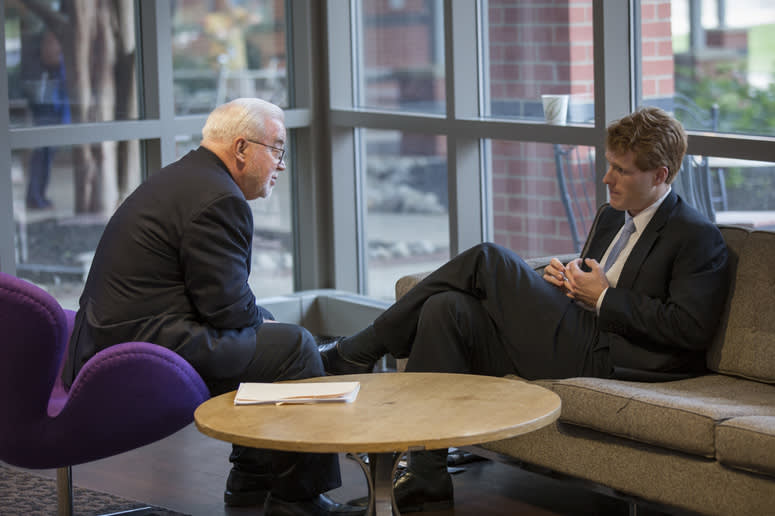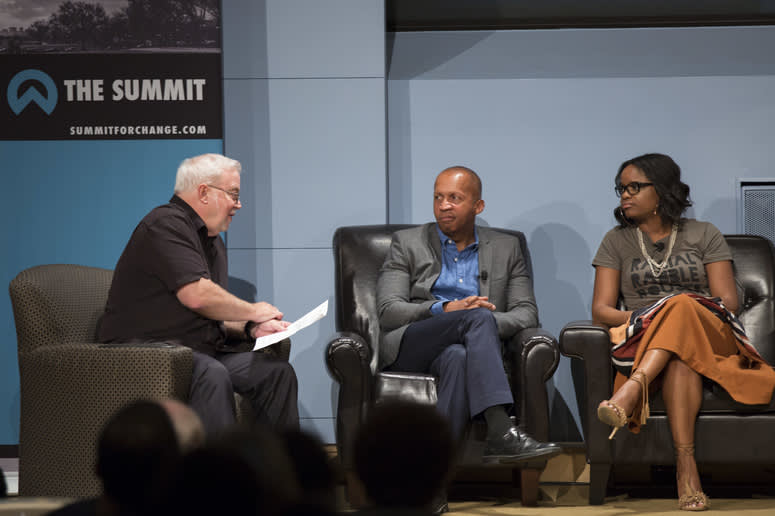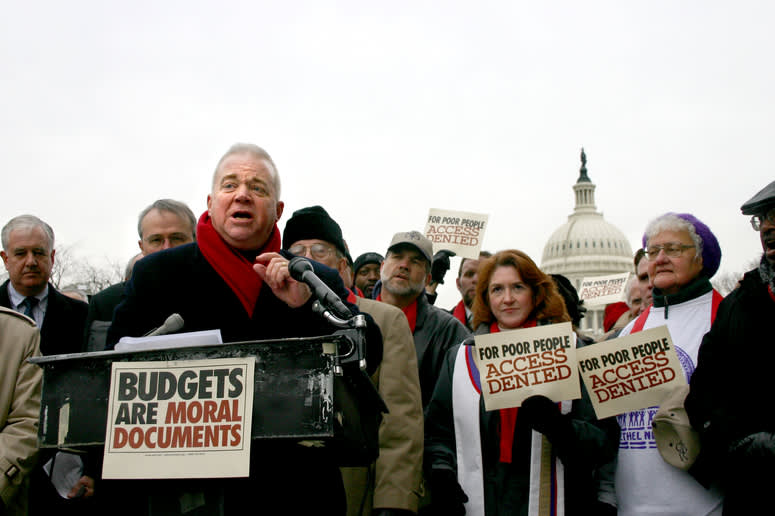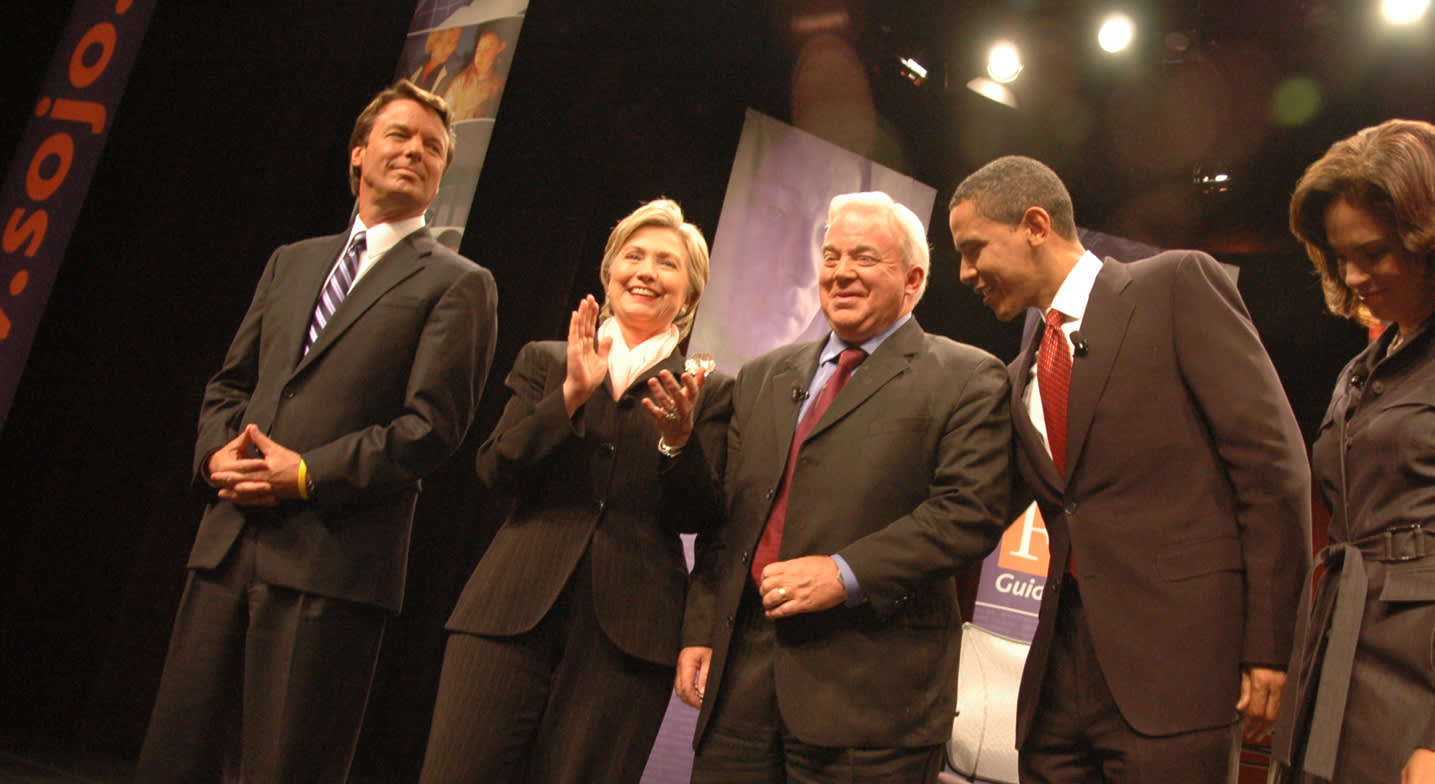We are living through a tumultuous time in the history of our nation and the world. I've been working at the intersection of faith and politics for more than 40 years, and I'm genuinely unsure if there's ever been another time in my life or career where our country felt this divided or the stakes felt this high--at least since the 1960's. When the very concept of knowable truth and facts seems like it is under attack - along with people and families simply because of their race or religion - everything we know and care about is also vulnerable. What's at stake: the soul of the nation and the integrity of faith--especially, but not only, for those of us who are people of faith.
Many people I've spoken to in the last few years have friends and family they are struggling to maintain good relationships with due to differences around the most important yet most contentious social and political issues of our time. Issue like racial justice, immigration, religious identity, health care, guns, and that's just to name a few. Our traditional and social media have become so fragmented and polarized that we find ourselves practically inhabiting a different reality than those we disagree with, parallel universes in which we only really hear and engage with the perspectives of those with whom we already largely agree. This is not a tenable situation for our country. If we are to remain whole as a nation, we need to actively engage in difficult conversations with people we disagree with and find some common ground for the common good.
I have always believed that we can attain this necessary but difficult goal by getting beyond the superficial and tribal nature of our political debates as they play out in the media and the halls of power. We can accomplish that by identifying the deeper moral and spiritual values that are at stake and lie behind these debates. Don't go left, don't go right, go deeper. When we debate and share with each other on those terms, we often discover that people with very different political leanings share many of the most basic values. Most of us want the same things for our kids.
It's with that in mind that I approached my new Audible series, In Conversation. I set out to have conversations with some of the most brilliant and moral leaders about some of the most vexing national and global issues we face. I wanted to hear their stories, understand their perspectives, and absorb their wisdom about the timeless values behind the issues of greatest consequence to us in the United States today. If we get to the values and ethical choices beneath the headlines, we are likely to get further in our conversations. And we can discover how to connect the two great hungers of our world today: the hunger for spirituality and the hunger for justice.

When I talked to some of these amazing people--from Joe Kennedy III, a rising leader in Congress, to Margaret Atwood, the author of The Handmaid's Tale (and more than a dozen other fantastic books), to Brittany Packnett, a leader in the movement to end police violence against people of color--I gained precious insights into some of the values and truths we need in order to move forward as a society. Perhaps equally importantly, I gained some understanding of how to have difficult conversations with people we disagree with and why these conversations are so necessary. What follows are a few of the truths I learned.
Focus on underlying areas of agreement based on common moral values.
There's a fundamental obligation, common to almost all faith and moral backgrounds, to care for society's most vulnerable people. We don't have to agree on how to solve poverty or make sure sick people can get health care they can afford or fix our immigration system to agree that poor people, sick people, and immigrants face tremendous difficulties in our society and our values teach us we should help and include them. Novelist Margaret Atwood puts it this way: "Every major religion has said you need to minister to the poor you need to take care of the poor people you need to take care of the widows and orphans. And that is in the Old Testament and it's in the Gospels and certainly in a motif in the Muslim religion and it is a motif in Buddhism as well...You need to take care of if you are having an inclusive kind of society, you need to take care of the people on the bottom end."
Find common ground by with seeing, understanding, and valuing each other on a basic human level.
It doesn't matter where you were born or what your circumstances are or who you voted for--we all want to be happy, and we all want the best for our children. More deeply, people of many faiths believe that fundamentally, we are all created in the image of God, and that ties us inextricably to each other. As educator and activist Brittany Packnett told me: "Our failure to see ourselves in one another, our failure to see God in one another is why mass incarceration exists. It is why police violence exists. It is why not all children are educated the same in this country. I believe that if mothers can talk to each other and say, 'See me and see my child in the way that you see your own,' that will lead to a different conversation.

Remember the truth still matters, however inconvenient or difficult that might be.
Bryan Stevenson -- a brilliant lawyer and the author of Just Mercy--recently reminded me that unity for its own sake can't be our only goal. Some things really are more important. As Bryan put it in our conversation for this series: "You have a growing community of people who want to talk about truth and reconciliation, and what they don't recognize is that truth and reconciliation can't be simultaneous. Truth and reconciliation is sequential. You have to tell the truth first because without the truth you don't know how to reconcile yourself to what you're trying to do."
He's right. Unity achieved by avoiding hard truths (like the United States' legacy and present reality of systemic racism--what I call America's original sin) is a false unity, and one that keeps the people in power powerful and keeps oppressed people oppressed.
Be patient. Real change takes time.
This is true of the big problems we want to solve in our society, and it's equally true in our relationships with people whom we disagree with. As Rev. William Barber II--one of the most dynamic and important faith leaders in the country today leading a new organization called Repairers of the Breach--told me: "It's going to be a long-term engagement. So, if the Montgomery bus boycott was over 380 days we need to get ready not just for a tweet. We need to turn up our faith [and] turn on our courage...and not give up the faith."
Rev. Barber is talking about the fight for social justice, but it's equally true of the struggle to change the hearts and minds of those we disagree with and the project of repairing those relationships. In fact, in many ways these are not separate struggles at all. Repairing our divisions as a society and achieving a society where justice exists for everyone, not just those at the top, are highly interdependent.

Don't give up hope -- or love.
How do we get back to the big questions by appealing to the best of our faith or our moral values? That is the task before us now. The conversations we need at our holiday dinner tables, our coffee shops, in our congregations and local communities must not just be arguments about facts and "fake news." They must be about the values and the faith that are meant to shape our souls and the soul of the nations.
This is the moral conversation we need to have, especially since the political discussion has driven us apart into different cultural universes whose inhabitants almost never speak to one another. But words must lead to action or they matter for little.
Ultimately, though we tackle the most difficult and painful issues we face as a nation and a world, these are also conversations about hope. Valarie Kaur--a documentary filmmaker and anti-discrimination activist--reminded me of this with a beautiful analogy: "What if this darkness is not the darkness of the tomb but the darkness of the womb? What if our America is not dead, but a country that is waiting to be born? What if the story of America is one long labor? What if this is our nation's great transition? What does the midwife tell us to do? Breathe. Then: push." Kaur said. "I do believe the rising up that we are seeing right now I have not seen in my lifetime. People of all different colors and faiths and backgrounds standing together in ways I have never seen before. Millions of people awakened in ways I've never seen before. I think that if we are breathing together and if we are pushing together it is possible to birth a new future. And that's why I believe that revolutionary love is the call of our times. Revolutionary love for others, our opponents, but also ourselves."
As a father, I can only add: Amen. Let it be so.




